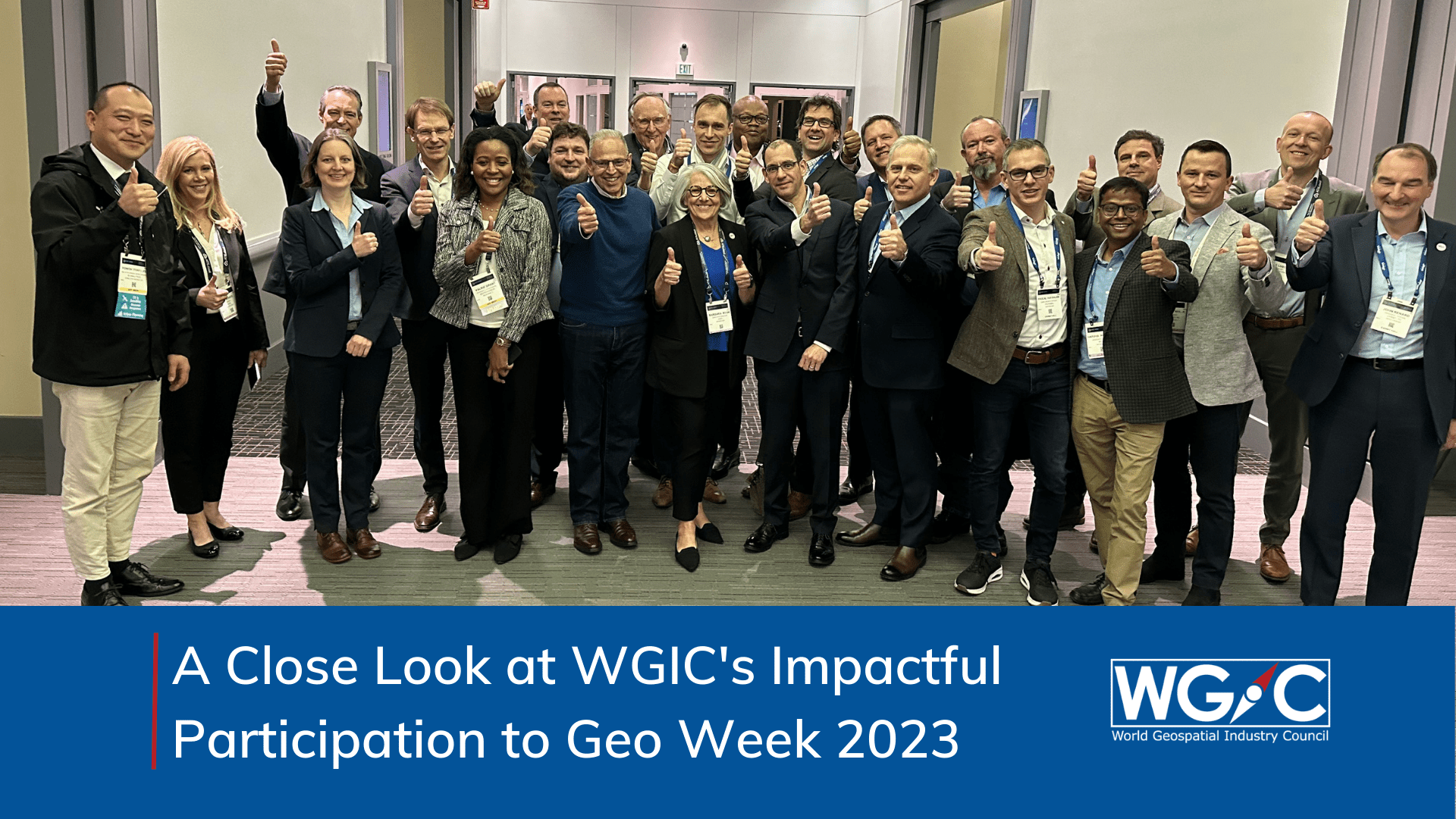The World Geospatial Industry Council (WGIC) was a strategic partner of Geo Week 2023, with Barbara Ryan, Executive Director of WGIC, serving on the Geo Week Advisory Board. WGIC actively participated in the conference program leading several sessions aimed at sharing knowledge with the Geo Week community. These included a session on industry-academia collaboration, a panel in partnership with MAPPS on climate and Public-Private Partnerships (PPPs), and an event focused on raising awareness about Diversity, Equity, and Inclusion (DEI). Additionally, WGIC participated in the exhibition and organized its quarterly board meeting on the sidelines of the event.
MAPPS and WGIC Panel – Climate Action, Built Environment and Value of PPPs

“The Impact and Power of Public, Private Partnerships from the Natural (climate) Environment to the ‘Built World,’” session organized by the collaborative efforts of MAPPS and WGIC, discussed the power of Public-Private Partnerships (PPPs) in tackling climate change and meeting UN Sustainable Development Goals.
PPPs allow for the private sector’s innovative solutions and investment capabilities to complement the public sector’s regulatory and funding strengths. The panelists shared their experiences, from defining solutions and creating rules of the game to the importance of data quality and the need for active management systems to maximize utilization. They stressed the necessity of collaborative efforts and how PPPs will continue to play a crucial role in rapid decarbonization and ensure a sustainable future. To read more about the impact and potential of PPPs, check out the full article.
Panel on DEI – Awareness, Advocacy, and Action in the Geospatial Sector

WGIC’s DEI Committee’s formation in 2020 led to a fundamental transformation within the geospatial sector, with many members beginning to implement DEI programs. Soon, WGIC’s focus shifted towards making companies more responsible in implementing programs and collecting data to back up their efforts.
The session emphasized the importance of intentional efforts to promote accessibility and inclusivity, establish hiring practices supporting diversity, and create a healthy and cooperative environment within teams. Companies’ accountability for their hiring practices is only the start of the journey. DEI efforts within the companies’ internal practices are of no less importance. Ultimately, creating a more inclusive and representative industry that caters to the needs of diverse communities is up to all of us to work together.
Discover the importance of accountability for hiring practices and internal DEI efforts in creating a more inclusive geospatial sector by checking out the full article.
WGIC Session – Industry-Academia Collaboration

Geospatial data has immense potential to impact our lives. WGIC brought together representatives from industry and academia at Geo Week 2023 to discuss strategies for growing the workforce in a valuable way.
During the “Geospatial Education and Market Needs” session, experts explored the need for qualified professionals, the role of academia, and opportunities for closer collaboration with industry. Maxar, for example, heavily relies on internships, university graduates, and the network of current employees to find talent. However, skill gaps can occur between academic curriculum and industry needs, leaving university graduates unprepared for the workplace. That’s why collaboration with industry is necessary to ensure that students have the necessary skills before graduation. The discussion also emphasized the importance of staying current with industry trends and considering the human aspect of every project.
The event produced significant outcomes, including developing a repository of WGIC member offerings for academia and best practices on geospatial industry internships. Read more to discover how collaboration between academia and industry can contribute to the growth and development of the geospatial industry.
WGIC’s Booth at Geo Week

At Geo Week 2023, WGIC had a presence in the exhibition hall with a dedicated booth, where WGIC engaged in meaningful conversations with private sector companies, facilitated industry interactions, and explored new collaboration opportunities.
WGIC’s Quarterly Board Meeting

WGIC held its Quarterly Board Meeting (QBM) during Geo Week 2023 on February 14. The meeting was exclusive to WGIC members and featured a keynote address by Jack Dangermond, as well as introductions and presentations from new members.
In his address, Dangermond, WGIC Chair and the founder and president of Esri, emphasized the potential of geospatial technology to address some of the world’s most pressing challenges. He highlighted the significance of collaboration among various sectors, the power of data-driven decision-making, and the importance of creating a diverse and inclusive community of geospatial professionals. Dangermond also introduced the “geographic approach,” a holistic way of thinking and problem-solving that integrates geographic science and information and has the potential to impact every sector of society. Geographic Information System (GIS), a system that manages, shares, and applies geographic information, is a crucial tool for enabling the geographic approach and leveraging geographic knowledge to effect positive change. According to Dangermond, GIS is more than just a technology, and it’s essential to recognize the significant role of geospatial professionals in understanding community needs, promoting collaboration, maintaining trust, and linking data and science to decision-making.



